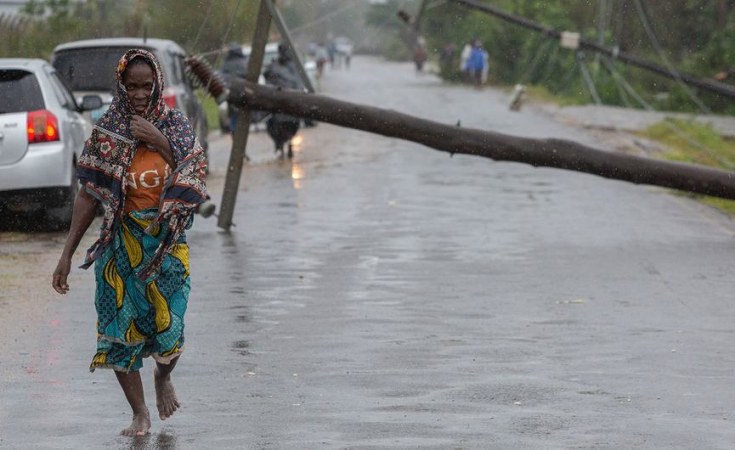Millions of people have nothing left to eat but wild roots as they have lost their crops to repeated extreme weather
Tropical storm Filipo has hit Mozambique today, leaving hundreds of thousands of people in urgent need of humanitarian support. The storm, which made landfall in Inhambane province in Mozambique, comes just a year after Cyclone Freddy ravaged several parts of Mozambique and Malawi, and left millions of people without food, water, or shelter, said Oxfam today.
Oxfam, together with partners, is still assessing the scale of damage, amidst severe communications disruption.
"Consecutive disasters have made it almost impossible for affected communities to recover and rebuild their lives. Whatever little crops people have tried planting in this growing season have been damaged either due to El Nino-induced six weeks of dry spells or by flash floods." says Machinda Marongwe, Oxfam in Southern Africa Programme Director.
Climate change has made dry spells and flash floods more intense and more prolonged, which has decimated crops and ripped people of their last ability to cope. Over six million people are already facing acute hunger, many surviving on wild roots.
Eliza Anthony from Malawi's Chikwawa district whose family home was washed away by Cyclone Freddy floods says:
"Last week, we stayed a day without eating anything and the following day we survived on porridge only. This year has been harsh as well since all the crops that we planted have dried up".
Jose Mucote - the Executive Director of Associacao Ajoago, Oxfam's partner in Mozambique- says: "The same areas hit by Cyclone Fredy are currently experiencing the effects of El Nino [prolonged dry spells]. Because of the damage caused by Cyclone Freddy floods, many have nothing to eat now. Some have sold all their livestock to buy food, plunging themselves further into a poverty abyss".
In neighboring Malawi, where heavy rains are also expected, Oxfam's partner Mandida Zunga, the Secretary of the Catholic Development Commission, says: "It is always a disheartening site visiting the affected communities because many have already failed to rebuild their homes, and have no place to grow food. Any flooding will bring rocks, stones and sand making it difficult for people to grow food again.
Cyclone Freddy - one of the deadliest storms to hit the African continent in the last two decades - killed over one thousand people, swept away entire villages, forced thousands of people out of their homes and decimated over one million acres of cropland. The estimated loss and damage for both Malawi and Mozambique was USD0.5 and USD1.5 billion respectively.
Recurrent extreme weather means that governments are just unable to cope with skyrocketing needs. They cannot rehabilitate billions worth of damaged public infrastructure such as roads, schools, and hospitals due to lack of resources.
"It is times like these when climate financing is most needed, to build up practical and sustainable solutions for smallholder farmers and people impacted by repeated climate shocks. But rich polluting countries are still slacking leaving vulnerable populations to continue pay the price for a problem they have done very little to cause", adds Marongwe.
Oxfam is responding but urgently needs eight million Euros to scale up its operation to reach 600 thousand impacted people across both countries with lifesaving cash, crop inputs and livestock, as well as, to rehabilitate water sources and support women and girls.


